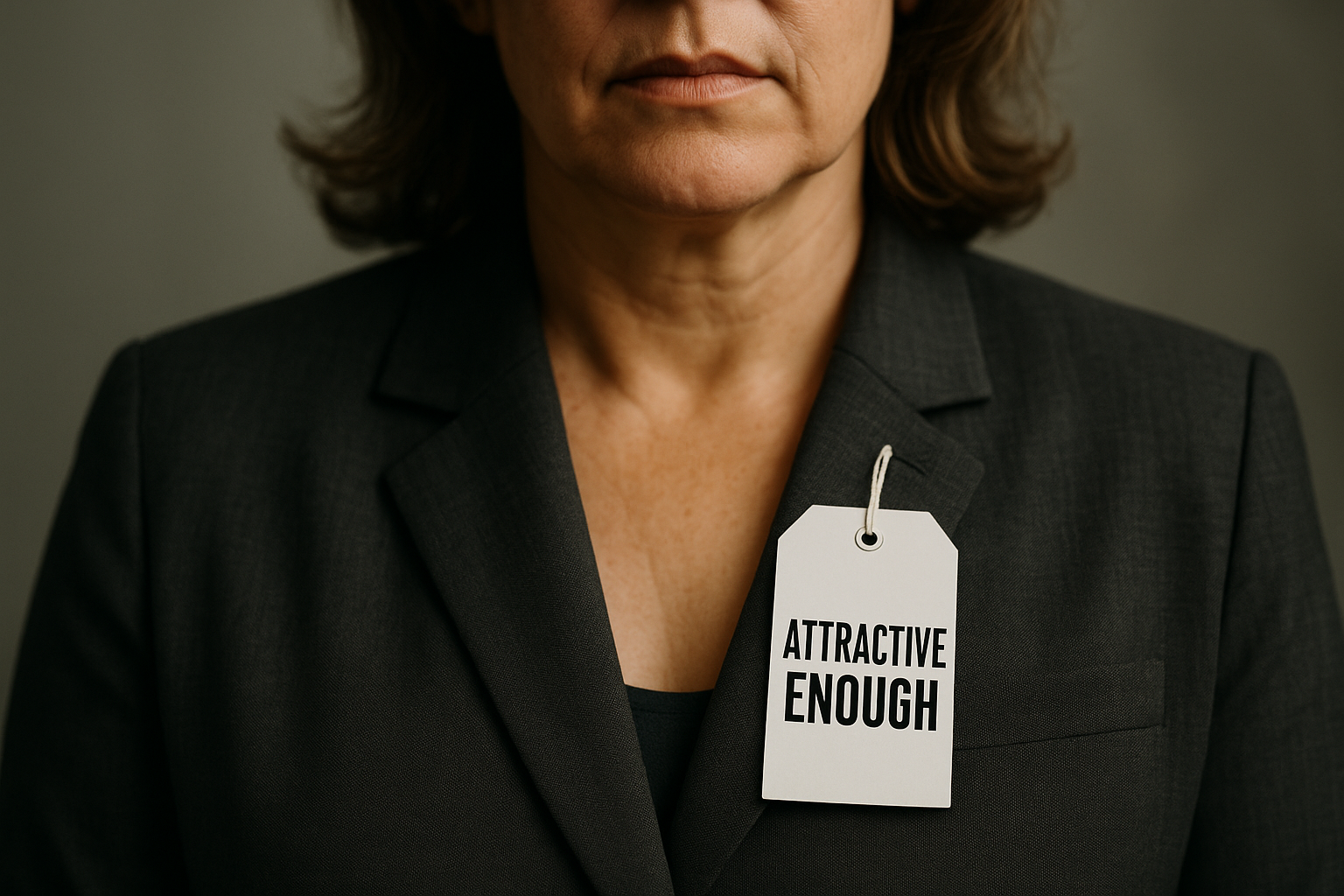When Did “Attractive Enough” Become a Job Requirement?
I used to joke, when casting experts for television programs, that I wanted someone “Jimmy Johnson attractive”—racecar-driver attractive—not “Matthew McConaughey attractive.” Someone you’d want to grab a beer or coffee with, but not so attractive your spouse would be distracted.
In hindsight, that’s a pretty horrible reality. My measure of on-screen talent wasn’t just expertise—it was aesthetic value.
Media, in almost all its forms, is discriminatory. Attractiveness plays into nearly every decision. Think I’m exaggerating? How many people truly believed Kate Winslet was a “worn-down” cop from Chester County?” Her performance was magnificent, but if you’ve spent time in a blue-collar, pre-gentrification town, you rarely find someone with such flawless skin.
My husband devours British crime shows, and I’ll give the Brits credit—people generally look more realistic. (Though some of the wardrobe choices seem a bit too vibrant compared with my experience on the island. That said, I’d wear every sweater from Dept Q.)
The Weight of Attractiveness
This obsession with attractiveness goes into overdrive when it comes to weight. Remember Will & Grace? For years, writers loaded the show with jokes about Grace’s “weight,” when no sane person would think Debra Messing was anything but rail-thin.
More recently, Melanie Lynskey—who would absolutely be every regular woman’s most attractive friend—was body-shamed for her role in Yellowjackets and again in The Last of Us. How could a woman larger than a size 4 possibly be a capable leader?
Her response on X was perfect:
“I’m playing a person who meticulously planned & executed an overthrow of FEDRA. I am supposed to be SMART, ma’am. I don’t need to be muscly. That’s what henchmen are for.”
My Own Experience in Television
During my two-decade career in television, I constantly worried about being too big, too loud, too sloppy, too… too. Should I conform or be myself? If I’m not even “Jimmy Johnson attractive,” how do I stand out?
Time and education eventually answered those questions—and calmed those fears. Now I lead body image and empowerment workshops, exploring what would happen if we stopped treating our bodies (and ourselves) as a PR problem.
Body acceptance for women—whether we’re tall, short, fat, or thin—isn’t indulgent. It’s radical clarity.
Radical Clarity and Self-Acceptance
My ability to run a multimillion-dollar TV series depends on my intelligence, experience, and ability to collaborate—not my dress size. Does body discrimination still come into play? It shouldn’t. Not at this stage.
My body isn’t a PR problem. I know exactly what I bring to the table.
To paraphrase Lynskey:
“I am a person who meticulously planned and executed <blank>... I am supposed to be SMART, ma’am.”
Radical acceptance starts with ourselves. It lets us redirect all that energy we’ve spent trying to change what doesn’t need changing—and put it toward making an impact.
Looking Ahead
Will media ever fully embrace that clarity? Probably not. Humans like looking at attractive people. We’ll still applaud Kate Winslet or Nicole Kidman when they “ugly-fy” for a role.
But when people rush to defend Melanie Lynskey? That’s progress.
That’s radical clarity—and I’ll take it.
What would change in your industry if we stopped treating our bodies as PR problems?

